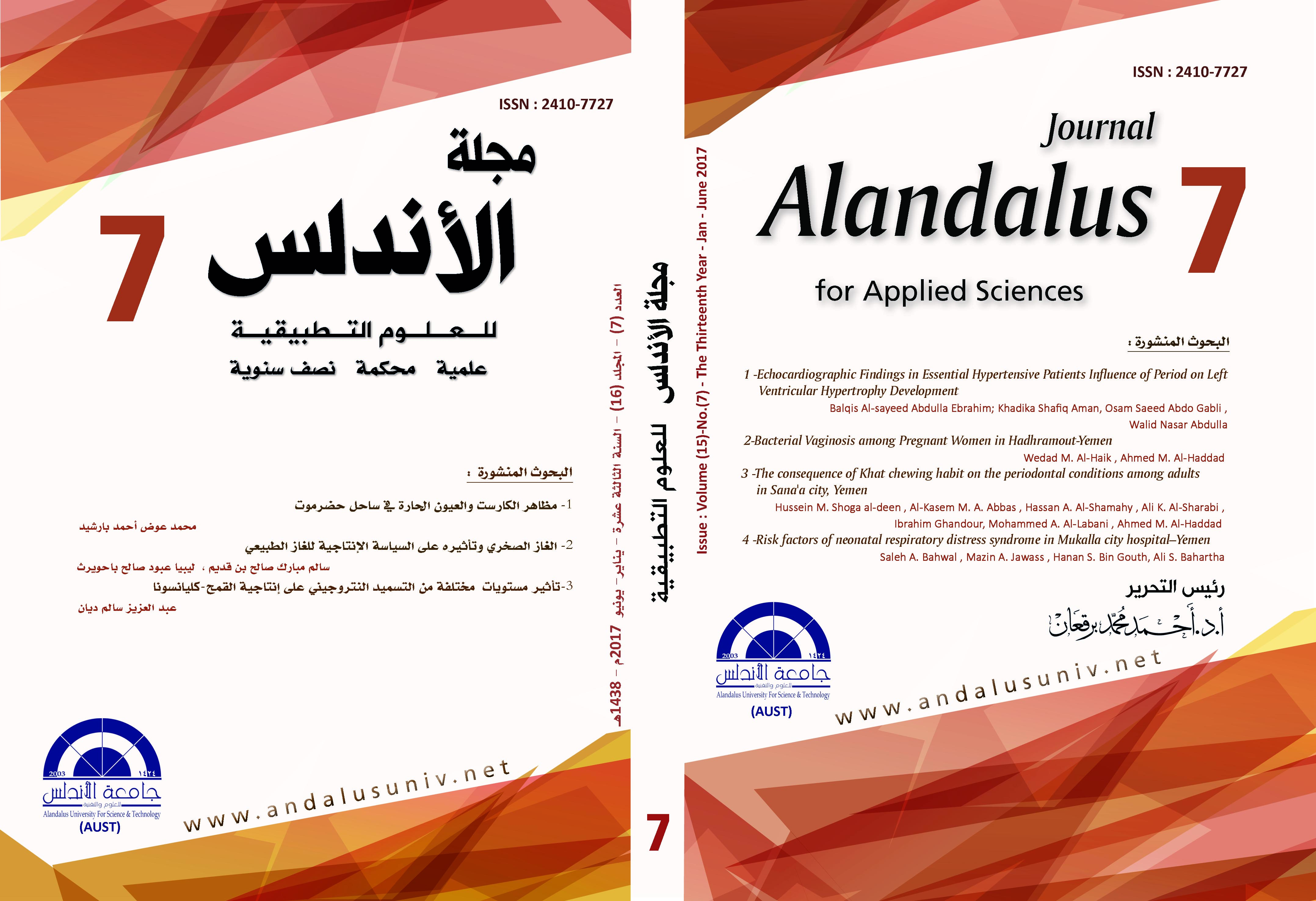A study of neonatal respiratory distress syndrome in Mukalla city hospital-Yemen Bahwal, Salih Awwad Bin Ghawth, Hanan S. Bahartha, Ali S. Jawas, Mazin Ahmad Ali
Main Article Content
Abstract
الملخص EN
Objectives:The aim of this study was to find the main risk factors of neonatal respiratory distress syndrome.
Study Design: This case-control study enrolled 150 cases with RDS and 150 controls without RDS with gestation age 23 to 41 weeks, who attended and admitted to department of neonatology & to neonatal intensive care unit (NICU), Mukalla city hospital from January 2015 to December 2015.
Clinical information, including maternal age at pregnancy, gestational age (weeks), mode of delivery, sex, Multiple gestation, birth asphyxia, maternal fetal infection, premature rupture of membranes (PROM), gestation diabetic, placental abruption and pregnancy hypertension disease were studied as risk factors.
Results: We found that prematurity (OR 60.37; 95% CI 28.98 to 125.76; p-value < 0.
0.0001), birth asphyxia (OR 27.16; 95% CI 1.59 to 46.18; p-value 0.
0.02), low birth weight(OR 16.47; 95% CI 8.77 to 30.92; p-value 0.
0.001), maternal fetal infection (OR 5.50; 95% CI 2.55 to 11.84; p-value 0.
0.001), cesarean section (OR 3.85; 95% CI 2.03 to 7.29; p-value 0.
0.001), male sex (OR 3.72; 95% CI 2.37 to 5.84; p-value 0.
0.001), PROM (OR 3.50; 95% CI 1.64 to 7.45; p-value 0.
0.001), were the main risk factors of RDS in neonates.
Conclusions: The main risk factors of RDS were, prematurity, birth asphyxia, low birth weight, maternal fetal infection ,cesarean section, male sex, PROM.
These could provide a significant reference for the diagnosis and treatment of neonatal RDS.
